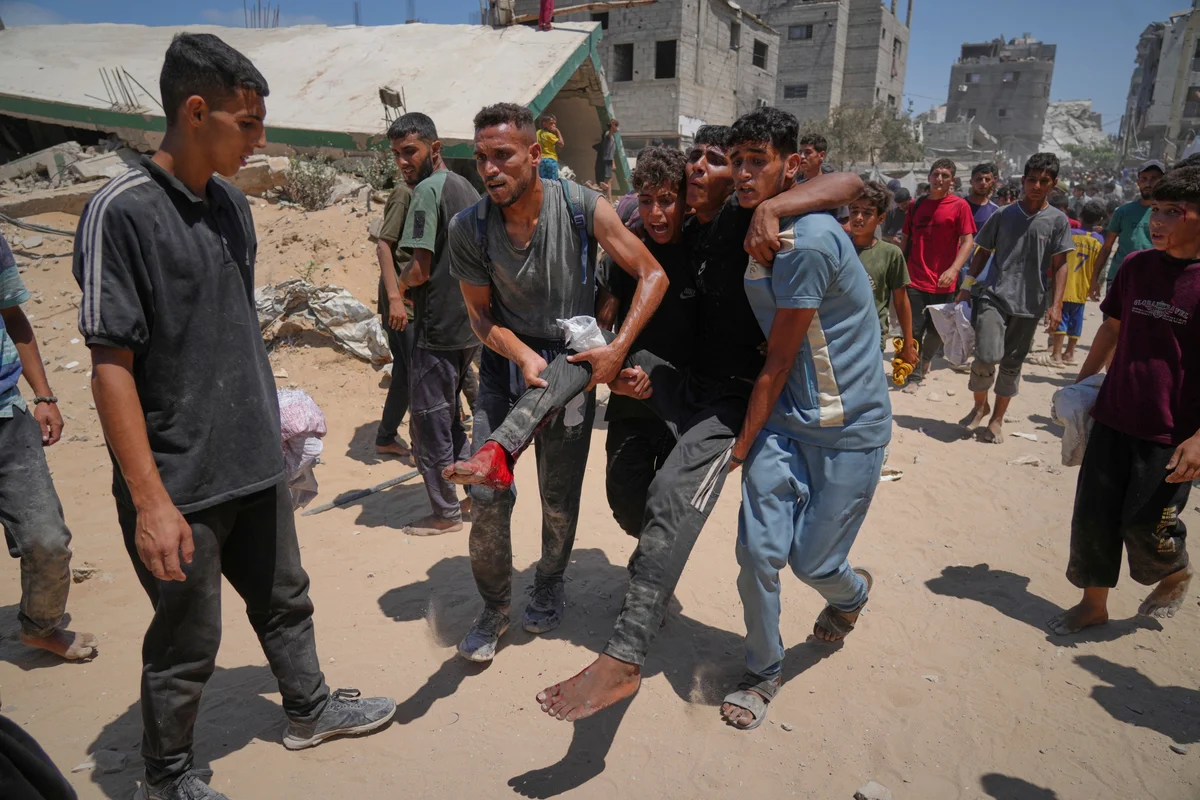By Bel Trew
Copyright independent

Countries around the world must accept more critically ill and wounded patients from Gaza, the World Health Organisation (WHO) has said as the Israeli military advanced into the strip’s largest city.
The plea comes after the UK announced that 10 critically ill and injured children from Gaza had landed in the UK for urgent NHS medical treatment this week.
The WHO welcomed the move but top officials told The Independent there are still 15,600 other patients in need of life-saving care who remain on an evacuation waiting list – including 3,800 children. The concern is that as Israel expands its offensive in Gaza City, the number will only grow.
“The key issue inside Gaza -and the reason we resort to medical evacuations – is because the hospital cannot cater to massive amount of complex injuries requiring specialised treatment, Dr Rik Peeperkorn, head of the WHO for the Occupied Palestinian Territory, told The Independent.
“They are only able to do enough to keep people alive given limited supplies and resources.
“There is no capacity for rehabilitative, care, or treatment for complex surgery, for example, all of that is unavailable. “
As forces pushed deeper into Gaza City, Dr Peeperkorn also implored Israel to restore the medical corridor to the occupied West Bank, including East Jerusalem, which was shut down after the 7 October 2023 Hamas attacks on Israel.
He said allowing Palestinian patients from Gaza to be treated in West Bank is the fastest and most cost-effective evacuation route and could save countless lives. The third demand was that within Gaza, hospitals need to be protected.
“Despite everything that has gone on they are trying to retain some services. Our concern is the incursion in the north where the bulk of the hospitals lie, those life saving services are going to be reduced even more,” Dr Peeperkorn added.
Israel has denied targeting Gaza’s healthcare system. Instead, it has accused Hamas of using hospitals and medical centres as operational bases — allegations that Palestinian and international medics and aid organisations say are unfounded.
For the past 23 months, it has repeatedly bombed and raided Gaza’s hospitals, imposed a siege restricting medical supplies and personnel, and, in some cases – according to the Independent’s own investigations – detained, disappeared and tortured medical staff who have died in detention.
Most recently Medical Aid for Palestinians said Israeli forces bombed al-Rantisi medical centre, the only specialist children’s hospital left in Gaza.
As a result, multiple UN bodies, including the WHO, have accused Israel of the intentionally “dismantling” of the Palestinian healthcare system, which has been on the verge of collapse after nearly two years of intense bombardment.
The WHO said it had recorded nearly 700 attacks on healthcare in Gaza since October 2023. That has left only 19 of the Gaza Strip’s 36 hospitals remain operational in some capacity: at least 94 percent of all hospitals in the Gaza Strip are damaged or destroyed.
A UN Commission of Inquiry report released on Tuesday concluded that Israel has committed genocide in Gaza — citing as an example the “systematic destruction” of healthcare in the region.
That has meant that the 150,000 people believed to be wounded in Israel’s bombardment of Gaza struggle to receive treatment.
Among them is Palestinian journalist Mohamed Fayek, 28, who was critically injured in the devastating 23 August attack on one of the last remaining hospitals in southern Gaza, which killed Independent Arabia journalist Mariam Abu Daqqa.
His brother, Ahmed told The Independent that shrapnel had pierced his skull and brain, and torn apart his abdomen and sent horrid images of the gaping wounds.
The family say they are struggling to get him on an immediate evacuation list, which is usually first drafted by health officials within Gaza, before being sent to a WHO referral committee that coordinates the movement out of the besieged strip.
The family fear if he is not transferred “he will die any day soon” or be paralysed for life.
“We feel helpless,” his brother said with desperation.
“My parents live in constant fear of losing their son right before their eyes. We appeal to the entire world and to everyone who can do something to save Mohammed’s life by evacuating him and transferring him abroad for treatment, for fear that we will lose him and he will become completely paralysed.”
One of the biggest issues is finding a country that will accept the patients, says the WHO.
And even then, the process is complicated. In the UK, a cross-government taskforce has been working over recent weeks to coordinate the evacuation of just 10 children and their 50 companions, with officials describing it to the Press Association as a “complex humanitarian operation”.
Foreign Secretary Yvette Cooper welcomed the first group of children to the UK, saying that the healthcare system in Gaza has been “decimated”:
“Hospitals are no longer functioning, there are severely ill children unable to get the medical care they need to survive.
We continue to call for the protection of medical infrastructure and health workers in Gaza, and for a huge increase in medicines and supplies to be allowed in.”



